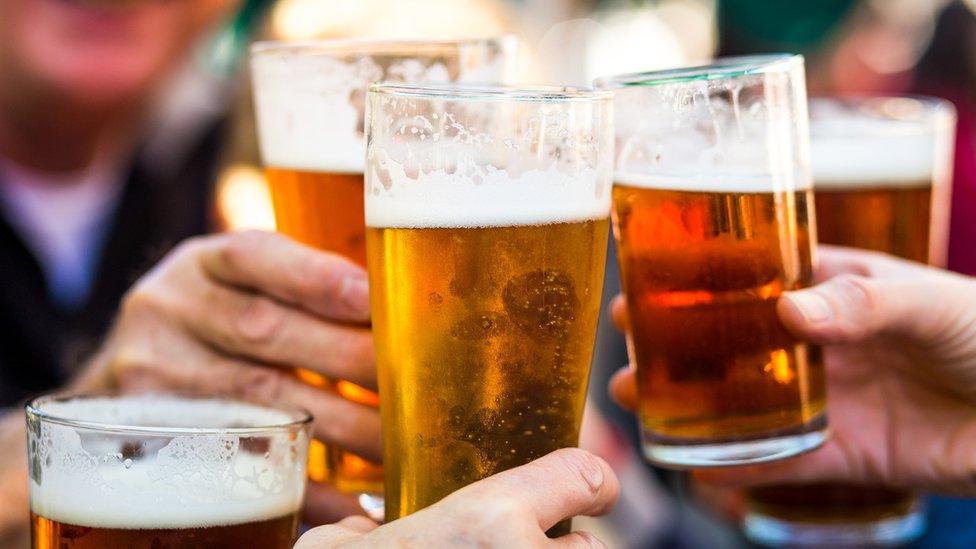Ketamine for alcoholics trial goes to next stage
- Published
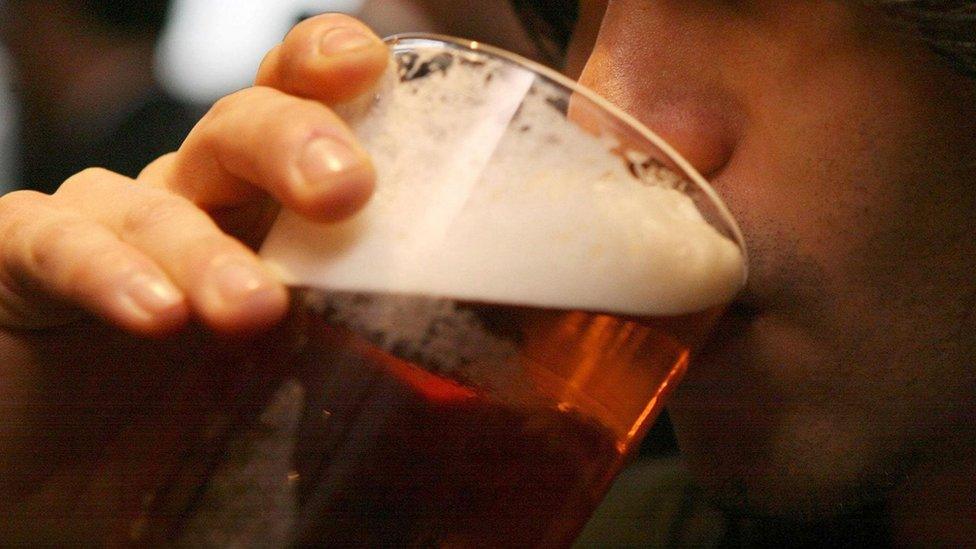
A study is examining whether ketamine can help alcoholics stay off alcohol for longer
A programme of therapy involving the drug ketamine will be made available to alcoholics in a research project.
The University of Exeter-led trial, with funding of £2.4m, will go ahead at seven NHS sites across the UK.
The trial will look into whether a combination of ketamine and therapy could help alcoholics stay sober for longer.
Prof Celia Morgan, the academic behind the research, said there was an "urgent need" for new treatments.
The research will go ahead after a phase two trial showed ketamine and therapy treatment was safe and tolerable for heavy drinkers.
An earlier study found participants who had ketamine combined with therapy stayed completely sober, representing 86% abstinence in their six month follow-up.
The Ketamine for Reduction of Alcohol Relapse (KARE) trial will now move to the next step of drug development, with the aim of rolling it out into the NHS if it proves effective.
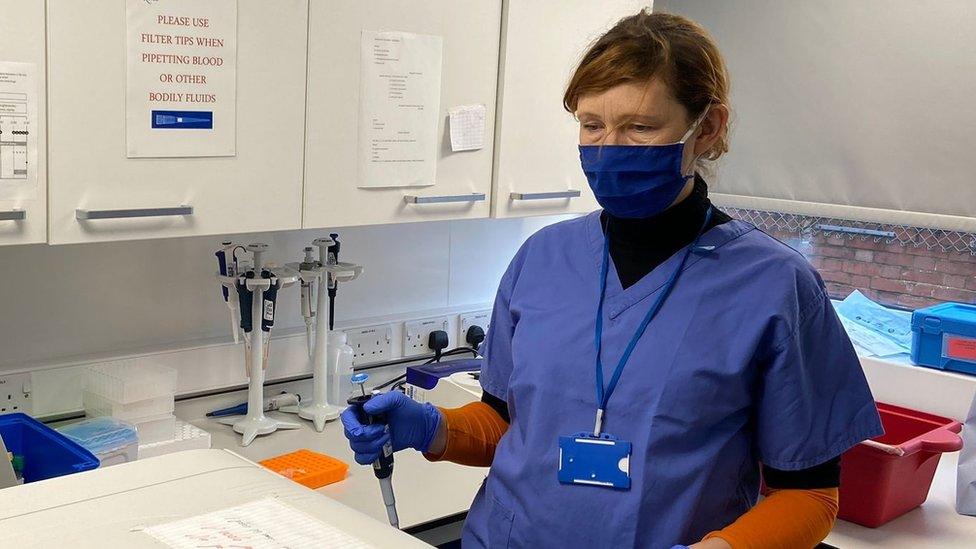
Prof Celia Morgan says ketamine therapy could save the NHS money
Prof Morgan, from the University of Exeter, said: "More than two million UK adults have serious alcohol problems, yet only one in five of those get treatment.
"Three out of four people who quit alcohol will be back drinking heavily after a year."
She said alcohol-related harm was estimated to cost the NHS around £3.5bn every year, and around £40bn to the wider UK society.
"Alcohol problems affect not only the individual but families, friends and communities, and related deaths have increased still further since the pandemic," she added.
"We urgently need new treatments."
Ketamine is a licensed medical drug, widely used as an anaesthetic and in pain relief.
It is also used as a recreational drug and is classified as a Class B banned substance by the Home Office.

The University of Exeter is leading the trial into the use of ketamine
The trial will recruit 280 people with alcohol problems who will be randomly split into two groups.
Half will be given ketamine at the dose used in the first clinical trial with psychological therapy.
The other half will be given a very low dose of ketamine and a seven-session education package about the harmful effects of alcohol.
Researchers will look at whether the ketamine and therapy package reduces harmful drinking.
Money for the trial is coming from the National Institute for Health and Care Research (NIHR), which is funded by the Department of Health and Social Care.
Additional funding is coming from Awakn Life Sciences, a biotechnology firm specialising in addiction treatments.
The new trial will recruit participants across Imperial College London; Oxford Health NHS Trust; Greater Manchester Mental Health NHS Trust; Northern, Eastern, and Western Devon CCG; South London and Maudsley NHS Foundation Trust; the Exeter Clinical Trials Unit; Mersey Care NHS Trust; University College London Hospitals NHS Foundation Trust; NHS Forth Valley; Cumbria, Northumberland, Tyne and Wear NHS Foundation Trust.
Recruitment is due to start mid-way through 2023.

Follow BBC News South West on Twitter, external, Facebook, external and Instagram, external. Send your story ideas to spotlight@bbc.co.uk, external.
Related topics
- Published11 January 2022
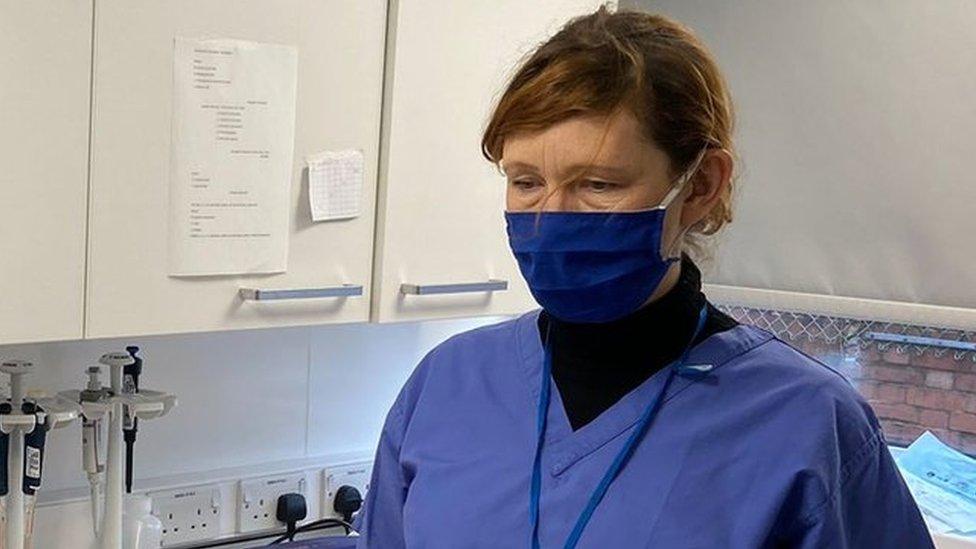
- Published15 March 2021
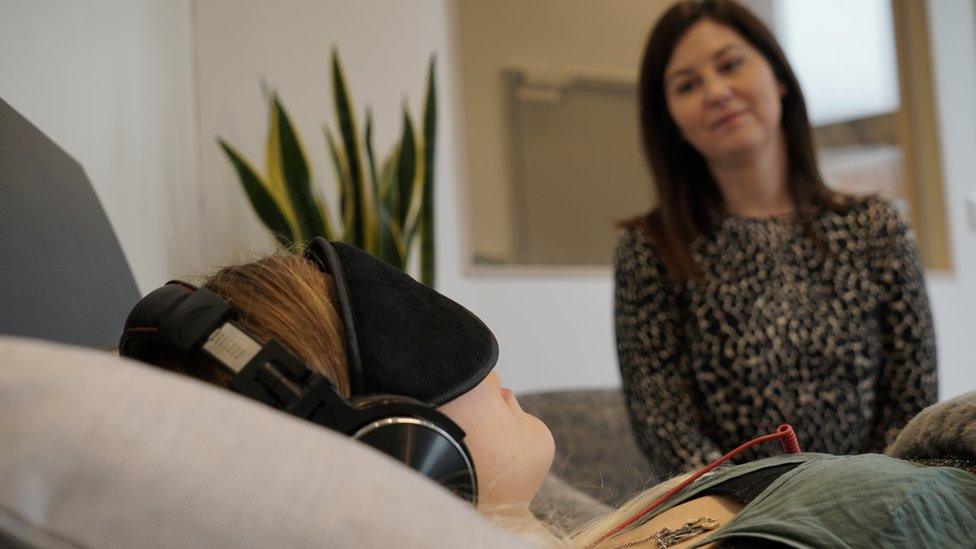
- Published28 January 2020

- Published26 November 2019
